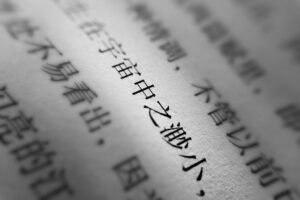In the intricate tapestry of Mandarin Chinese, making concessions in a sentence is as vital as it is subtle. Two key words that often come into play in these situations are “即使 (jíshǐ)” and “尽管 (jǐnguǎn)”. Both serve to introduce a concessive clause, akin to the English “even though” or “although,” but their usage and nuance differ significantly. This article delves into the distinctions between these two terms to help learners of Mandarin use them more accurately and effectively.
Table of Contents
ToggleUnderstanding ‘即使 (jíshǐ)’ and ‘尽管 (jǐnguǎn)’
First, let’s look at the individual meanings of these words:
- 即使 (jíshǐ): Translates to “even if” or “even though.” It introduces a hypothetical situation, emphasizing that the outcome remains unaffected by the given condition.
- 尽管 (jǐnguǎn): Means “despite” or “although.” This introduces a fact or a known situation, highlighting a contrast with what follows.
Usage and Examples
即使 (jíshǐ)
- Structure: 即使 + Condition, 主语 (Subject) + Verb + Object.
- Example: 即使下雨,我们也要去爬山。(Jíshǐ xià yǔ, wǒmen yě yào qù pá shān) – “Even if it rains, we will still go hiking.”
In this example, “即使 (jíshǐ)” introduces a hypothetical condition (rain) but emphasizes that the action (hiking) will happen regardless.
尽管 (jǐnguǎn)
- Structure: 尽管 + Fact/Known Situation, Subject + Verb + Object.
- Example: 尽管他很忙,他还是帮了我。(Jǐnguǎn tā hěn máng, tā háishì bāng le wǒ) – “Although he was very busy, he still helped me.”
Here, “尽管 (jǐnguǎn)” introduces a known fact (his busyness) but contrasts this with what follows (he helped).
Key Differences
Hypothetical vs. Actual: “即使 (jíshǐ)” is used for hypothetical situations, whereas “尽管 (jǐnguǎn)” is for real, known situations.
Emphasis: “即使 (jíshǐ)” emphasizes that the main action is unaffected by the hypothetical condition, while “尽管 (jǐnguǎn)” highlights the contrast or the unexpected nature of the main action given the actual circumstances.
Nuances and Context
Emotional Connotations: “尽管 (jǐnguǎn)” often carries a stronger emotional weight, emphasizing the unexpected or admirable nature of the main action despite adverse conditions.
Colloquial Usage: In everyday speech, “尽管 (jǐnguǎn)” is more commonly used as it deals with real-life situations, whereas “即使 (jíshǐ)” is more formal and literary, often found in written language or eloquent speeches.
Conclusion
In summary, while both “即使 (jíshǐ)” and “尽管 (jǐnguǎn)” are used to introduce concessive clauses in Mandarin, they cater to different scenarios. “即使 (jíshǐ)” is for hypothetical situations, and “尽管 (jǐnguǎn)” is for actual known circumstances. Understanding the subtle distinctions between these two terms can significantly enhance your proficiency in Mandarin, allowing you to express complex ideas with the appropriate nuance and precision.
Contact our head teacher, Chen Huimin, at info@lcchineseschool.com if you want to learn Chinese or have additional questions about our Chinese programs.
Sign up for a free trial class here.
Learn about our Internship Program in China.
Get free Chinese learning resources.
Learn about China’s 2024 Offical Holiday Schedule







